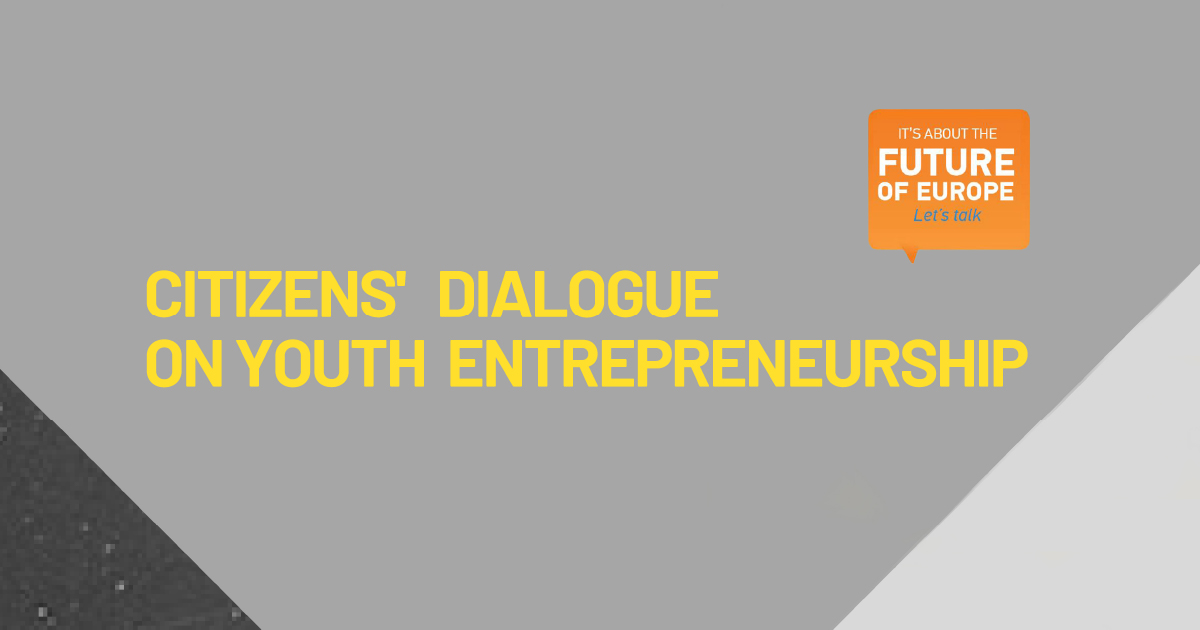Citizens’ Dialogue on Youth Entrepreneurship was a Great Success
More than 70 students, policy makers, researchers, prospective and already existing entrepreneurs shared their views on entrepreneurship
The Citizens’ Dialogue on Youth Entrepreneurship was organised by the Europe Direct Information Centre Nicosia and the European Documentation Centre University of Nicosia (UNIC Library & Information Centre) in collaboration with the UNIC Business School. The event took place on 27 February 2020 at UNESCO Amphitheatre and proved to be a great success, as it was attended by more than 70 policy makers, researchers, prospective entrepreneurs and already existing entrepreneurs.
The aim of the event was to ignite the sharing of ideas, knowledge, experience, opportunities, best practices, and the European Union’s approach to increase entrepreneurial activity throughout Cyprus. A dialogue was created between attendees, raising awareness on the culture of entrepreneurship. This was an excellent opportunity for students to be informed about entrepreneurship opportunities available to them and to get valuable guidance in this area.
The first speaker of the event, Prof. Despo Ktoridou, Head, Management & MIS Department, School of Business, University of Nicosia, touched upon the interrelated role of Entrepreneurship, Creativity and Technology Innovation underlining that entrepreneurs need to implement Technology Strategy which is the approach that a firm takes to obtain and use technology to achieve a new competitive advantage, or to defend an existing technology-oriented competitive advantage against erosion.
According to Prof. Ktoridou, key aspects of technology strategy that entrepreneurs need to learn include understanding the ways in which technologies change and how those changes affect the sources of opportunity for technological innovation; identifying innovation projects that meet customer needs and result in the development of new products and services; under ways in which companies capture the returns to investments in innovation;
and being able to examine the process of implementing technology strategy, exploring the management of human resources, organizational structure, and decision-making processes.
The second speaker, Ms. Stephani Theophanous, Erasmus for Young Entrepreneurs, presented the “Erasmus for Young Entrepreneurs” project, an EU funded exchange programme for new and experienced entrepreneurs, which offers the opportunity to work alongside an experienced entrepreneur in another participating country.
According to Ms. Theophanous, the benefits of the exchange program for a young entrepreneur include having the opportunity to acquire the skills and knowledge necessary for your new business venture; networking and growing business in international markets; and training at the headquarters of a small and medium-sized business in another country.
Whereas the host Entrepreneur will learn from the fresh ideas of a motivated new entrepreneur as well as from the specialised skills or knowledge in an area that possibly the host entrepreneur do not master which would lead to a win-win collaboration whereby both can discover new European markets or business partners, different ways of doing business.
As Ms. Theophanous stated: “It was a pleasure to participate to this event and have the opportunity to present a very interesting EU funded project entitled “Erasmus for Young Entrepreneurs”, which contributes in developing synergies and collaborations between experienced and young entrepreneurs across Europe! The audience was very interactive, curious and enthusiastic! It was very interesting listening and answering their questions!”
A crucial point for changing the entrepreneurial culture is to start changing the perception through communication about the successes of entrepreneurs and their value to society. Hence, their visibility as role models should be enhanced. For this, the third speaker Mr. Hasan Siber, the CEO OF COLIVE, a bi-communal start-up, presented the major role of creating social entreprises, which they achieve through their unique olive oil production for peaceful and sustainable coexistences. Portion of profits is donated to non-profit organisations and also invested in social entrerprises to expand the platform. First, olives across the Green line, which is a first in 50 years of the island’s division, are brought together. Economic cooperation is perceived as a major catalyst for social progress and Hasan Siber, during his presentation focused on asking how entrepreneurs or businesses in general help with youth entrepreneurship.

